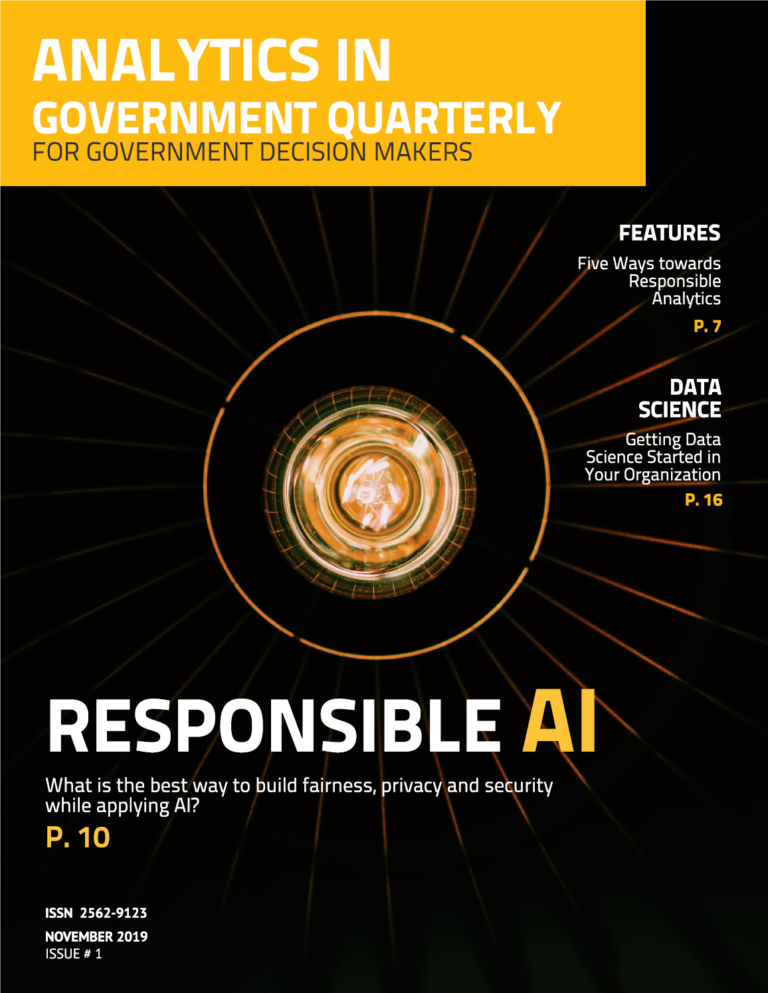ANALYTICS IN GOVERNMENT QUARTERLY
NOVEMBER 2019
A little over two years ago, executive senior management at the department of Immigration, Refugees and Citizenship Canada approved a pilot project proposal submitted by a number of data science practitioners: launching an Advanced Analytics model to support the processing of visa applications within a business line. After the first project management meeting, the project team soon realized that the journey was far from being a picnic.

AI is one analytic tool among many that can be deployed in organizations and that since all forms of analytics use data, managers need to build practices that include responsible analytics.
FEATURES
COLUMNS
The Canadian government is taking the lead in setting governance standards in the application of AI, prescribing a risk-based framework that can be a model for creating an AI-powered organization.
Ethics, both implicit and explicit, have a role at every stage of the AI life cycle. Everyone involved in AI development must be responsible for identifying and responding to ethical concerns.
Organizations are under constant pressure to make better decisions. They have adopted technology to respond to or anticipate three main events: Problems, Opportunities, and Directives.


